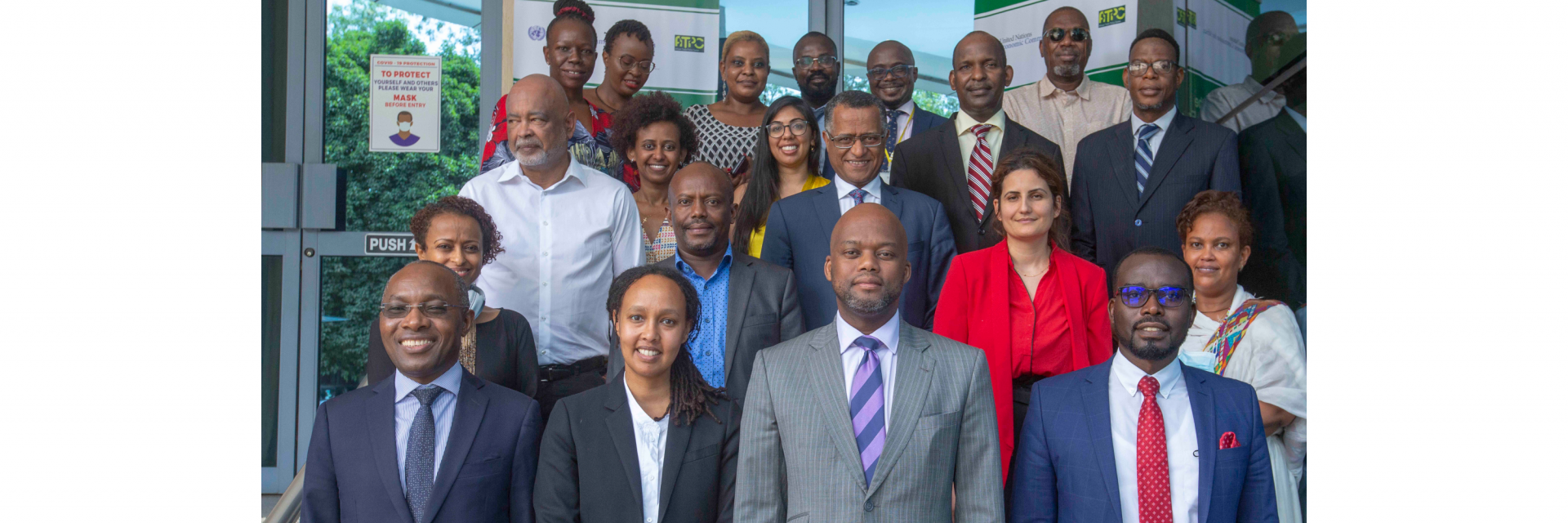Accra, 23 March 2022 (ECA) – “AfCFTA would not be a success without the support of the African Trade Policy Centre (ATPC),” said Wamkele Mene, Secretary-General of the AfCFTA Secretariat.
He was speaking during second Steering Committee Meeting (SCM) for ATPC’s fourth programme cycle, which was held in Accra, Ghana, from 21 to 22 March 2022. The meeting was hosted by the AfCFTA Secretariat.
The Steering Committee comprises key partners and stakeholders, including the AfCFTA Secretariat, the African Union Commission, the African Development Bank, Afreximbank, AU-recognized Regional Economic Communities (RECs), development partners, Civil Society Organisations, Gender Groups, African Think Tank(s) and the Private Sector.
Mr Mene stated implementing the ATPC IV project will require a shift away from the “mercantilist and market access-driven approach that for far too long has defined our thoughts and actions in the field of trade negotiations and implementation of resulting agreements.”
The SCM was followed by the ATPC Partners Coordination meeting, which discussed key strategic issues and ways to maximize the development impact of partner supported programs through better alignment and strengthened coordination.
The Secretary-General implored members of the SCM to put development at the centre of their thinking on AfCFTA implementation in order to enhance creation of gainful jobs, industrialisation, and inclusive growth. In this respect, he cited the recently launched “private sector engagement plan” involving stakeholders from across the private and public sectors, and from all corners of the continent to ensure an inclusive approach to implementing the AfCFTA.
Updating the Committee on the progress of AfCFTA implementation, he stated that State Parties have reached agreement on rules of origin on 87.7% of the tariff lines, while the technical work on outstanding issues is expected to be completed by the third quarter of this year. He further noted that the negotiations on Phase II issues are expected to be concluded by end of September 2022.
The Secretary-General concluded his statement by encouraging ATPC to stay engaged and to ensure “member states are supported in the implementation of the agreement to avoid loss of momentum and that no country or region is left behind.”
Mr. Mene who’s also Co-Chair of the Steering Committee expressed his appreciation to Global Affairs Canada (GAC) for providing resources to support the inclusive implementation of the AfCFTA.
For her part, Khadija Jarik, representative of Global Affairs Canada in Addis Ababa and Co-Chairperson of the Steering Committee, said that “ATPC is poised to be a leading example on the African continent as to how to integrate inclusion and diversity to enhance economic growth and development through gender-sensitive trade policy.”
She added that by providing technical assistance and knowledge to AU member states, training key stakeholders and undertaking advocacy, this project will help African State Parties pursue the reforms needed to implement the AfCFTA effectively without leaving anyone behind.
Stephen Karingi, Director of the Regional Integration and Trade Division at the Economic Commission for Africa (ECA), emphasised the importance of the annual SCM - a key pillar of ATPC’s governance framework - where strategic directions are set, risks and opportunities identified, performance evaluated, and the annual work plans and budgets are reviewed and approved.
Mr. Karingi assured the members of the Steering Committee that ECA, through the African Trade Policy Centre, stands ready to support Member States, the AfCFTA Secretariat, the African Union Commission, and other relevant institutions for the inclusive implementation of the AfCFTA.
He highlighted the ever-changing regional and global landscape in which trade takes place, focusing on the continuing challenges posed by the COVID-19 pandemic and the security situation between Russia and Ukraine, both of which have significant effects on Africa’s trade performance.
“As ATPC, we will continue to lead in providing member States with strategic advice on how to take advantage of the opportunities that arise from these situations and to minimize the potential adverse effects.”
The Steering Committee Meeting considered and adopted its Terms of Reference and set directions for ATPC work in 2022.
About ATPC
The African Trade Policy Centre of the Economic Commission for Africa was established in June 2003 with the financial support of the Canadian Government. ATPC is now in its fourth programme cycle that runs from 2021 to 2026 under a new project titled “Implementing the African Continental Free Trade Area (AfCFTA) to boost intra-African trade”.
ECA through ATPC continues to analyze trade-related issues through the lenses of the on-going Africa’s integration and transformation agenda, which essentially aims at attaining the following inter-related objectives: (a) achieving sustainable and inclusive growth through structural transformation, (b) strengthening Africa’s role in the global trade arena, and (c) promoting regional integration, in the spirit of collective development.
Issued by:
Communications Section
Economic Commission for Africa
PO Box 3001
Addis Ababa
Ethiopia
Tel: +251 11 551 5826
E-mail: eca-info@un.org

